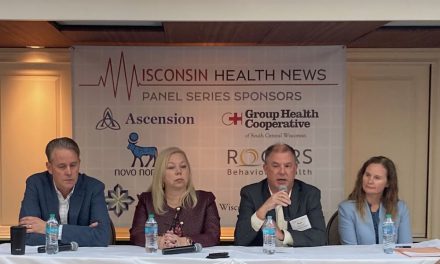
Wisconsin’s success in reducing hospital infections will be shared nationally
MADISON (March 21, 2016) —- A report released recently by the Wisconsin Hospital Association (WHA) documented progress hospitals here have made in reducing hospital-acquired infections. That success can be credited to the hard work and dedicated focus of health care professionals in Wisconsin hospitals to decrease infections and improve patient safety.
Important to the work within the hospitals is the support they receive from three key organizations: the Wisconsin Hospital Association; the Department of Public Health (DPH); and MetaStar, which represents Wisconsin in the Lake Superior Quality Improvement Network. DPH maintains robust surveillance processes to measure and track infections and potential outbreaks, an example of which is the recent work by DPH, working closely with the Centers for Disease Control (CDC), to identify the source of the Elizabethkingia outbreak in Wisconsin. WHA and MetaStar work with hospitals to help them decrease infection rates through the implementation of best practices. All three organizations are very focused on coordinating their work to avoid duplicating services and ensuring that all hospitals with higher-than-expected infection rates are getting assistance with their improvement work.
This highly collaborative partnership was recognized by the Health Research and Education Trust (HRET) with a contract, funded by the Centers for Disease Control (CDC), which asked Wisconsin to share their work related to reducing infections with hospitals across the country.
Wisconsin is one of only five states to receive a contract. The four other states are Michigan, Tennessee, Massachusetts and Arizona. Organizations in these five states will work with HRET and the CDC over the next 18 months to reduce hospital-acquired infections and develop learning content for other states to replicate their practices so they, too, can reduce their infection rates.
“Wisconsin is a highly collaborative state. While our hospitals and health systems may compete for patients, they truly believe that all patients, no matter where they go for care, should receive the safest care possible,” according to WHA President/CEO Eric Borgering. “WHA is proud to catalyze and encourage that sharing of best practices through the relationships we have with our partners at the Department of Public Health and MetaStar. Our goal is to not only continue our work to reduce
hospital-acquired infections, but also to help other states develop similar relationships so they, too, can make health care safer in their states.”
Sharing best practices in Wisconsin has occurred for decades. Spreading what Wisconsin hospitals and health systems know with other states with the help of HRET and CDC is exciting, important work.
“The commitment to delivering the best care possible in every region of our own state is now taking on even great significance as our work is being shared across the country,” Borgerding said.





